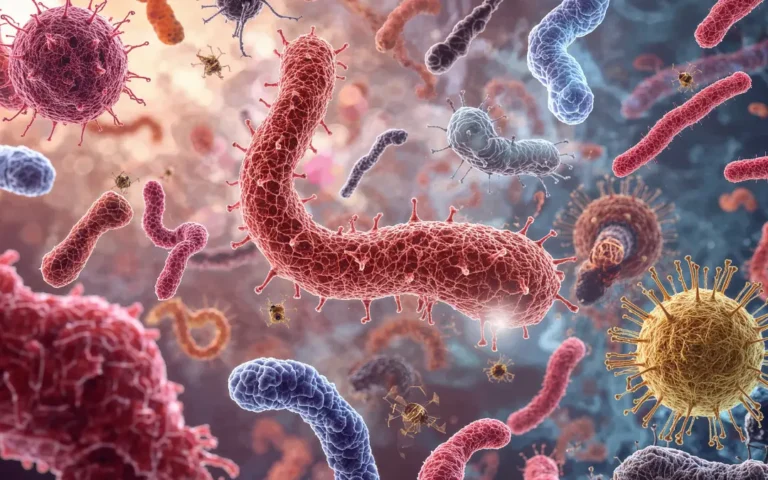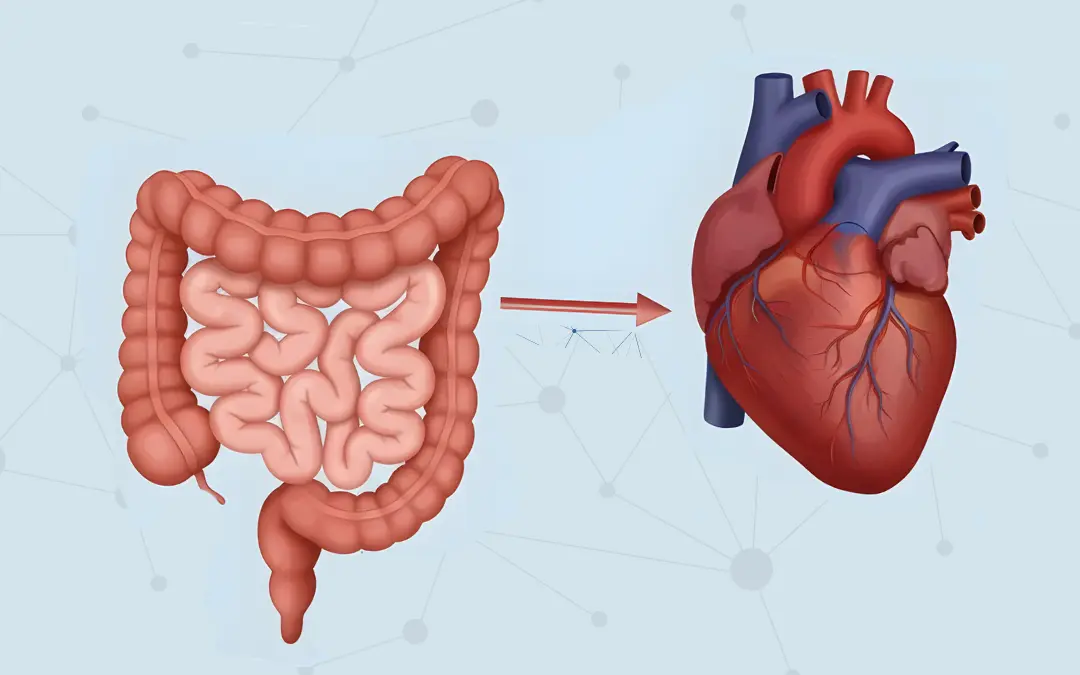- Written by Dr Nayana, Consultant at UWAY Health
A Classical Reference That Still Guides Clinical Understanding
“रोगाः सर्वे अपि मन्देऽग्नौ” — rogāḥ sarve api mande’gnau
(“Many diseases begin when the digestive fire is disrupted.”)
This line from the classical medical texts is not philosophical; it is a clinical observation. When digestion, metabolism, and gut regulation are disturbed, the rest of the body begins to show subtle signs of imbalance. Modern research today points in the same direction especially when it comes to the connection between the gut and the heart.
Why the Gut–Heart Link is Becoming One of the Most Important Areas in Medicine
When patients think about heart health, they picture cholesterol, stress, blood pressure, or family history. Very few imagine that their gut the place they believe is responsible only for digestion might be influencing their cardiovascular risk. Yet, as doctors, we now know that the gut is not just a digestive organ. It is an active metabolic and immune organ that continuously communicates with your heart through chemicals, immune signals, and microbial activity.
The more we study this, the clearer it becomes: your heart pays attention to what is happening in your gut, every single day.
What Exactly Lives in Your Gut?
Did you know that your gut is home to trillions of microorganisms bacteria, fungi, and other microbes. This ecosystem, or colony is called the gut microbiome that supports digestion, vitamin synthesis, immunity, and even emotional balance. When this ecosystem is in harmony, the body thrives. But when the balance is disturbed, something called “dysbiosis” develops.
This dysbiosis is no longer considered harmless. It is now linked to inflammation, metabolic changes, hormonal fluctuations, and increasingly, to cardiovascular problems.

How the Gut Influences Heart Health: The Science is Clear
One of the strongest scientific findings today is about a compound called TMAO (Trimethylamine N-oxide). Certain gut bacteria produce TMAO when digesting specific foods like red meat and eggs.
Research shows that:
high TMAO levels may contribute to heart attacks,
they may accelerate plaque formation in arteries,
and they may increase the risk of stroke.
Here is the Research link you can check
This is not the only pathway. When the gut microbiome is unhealthy, it may raise inflammation markers in the blood, influence how cholesterol is handled by the liver, and even affect blood pressure regulation. These changes slowly place the heart under stress.
Early Signs That Suggest Your Gut Might Be Affecting More Than Digestion
Many people ignore early digestive symptoms because they appear “mild” or “routine.” But these signs can indicate deeper imbalance:
frequent bloating,
irregular bowel movements,
unexplained fatigue,
heaviness after meals,
sensitivity to certain foods,
mood fluctuations.
When these early signs continue for months or years, they may silently increase heart risks. This is why complete evaluation is important — not just for the gut, but also for overall metabolic and cardiovascular health.

The Inflammation Connection: How the Gut Can Trigger Systemic Stress
Dysbiosis increases intestinal permeability, allowing certain metabolites to enter the bloodstream. This is commonly referred to as “leaky gut,” but medically, it refers to impaired barrier function.
When this barrier weakens:
inflammatory chemicals rise,
immune activity becomes over-reactive,
and this creates a chronic low-grade inflammatory state.
Chronic inflammation is a known contributor to high blood pressure, arterial stiffness, and cardiac dysfunction.
Research link
Cholesterol Metabolism: Why a Gut Imbalance Can Reflect in Your Lipid Profile
Doctors often see patients who maintain good diets and lifestyles yet continue to show borderline cholesterol values. In many of these individuals, the gut plays a crucial role.
Dysbiosis can:
reduce beneficial bacteria that help in lipid metabolism,
increase the bacteria that produce harmful metabolites,
alter bile acid recycling,
and indirectly raise LDL or triglycerides.
This explains why two people with similar diets can have very different cholesterol numbers.
Blood Pressure and the Gut: A Link Most Patients Don’t Expect
Emerging studies now show that gut microbes play a role in producing short-chain fatty acids (SCFAs) that help regulate vascular tone. When these beneficial microbes reduce, the body loses a natural mechanism that helps keep blood pressure stable.
This is why gut health is becoming an essential area in hypertension management as well.
Simple Daily Habits That Strengthen Both Gut and Heart
Here are few few consistent changes that can significantly improve the microbiome and reduce heart risks:
1. Eat for Your Microbes, Not Just Your Hunger
Fibre rich foods like vegetables, fruits, whole grains, and pulses feed beneficial gut bacteria. This reduces harmful metabolites and supports better metabolic balance.
2. Choose Fermented Foods
Curd, buttermilk, homemade pickles (non-oily), and fermented preparations support microbial diversity.
3. Minimise What Harms the Microbiome
It’s a no brainer, processed foods, excessive sugars, and frequent consumption of red meat disturb the balance of gut bacteria and increase TMAO production.
4. Move Daily It Directly Helps Your Microbiome
Exercise enhances gut motility and stimulates the growth of beneficial bacteria.
5. Manage Stress
Chronic stress disrupts the gut–brain axis, affects digestion, and weakens immunity all of which indirectly burden the heart.
6. Hydrate Well
Adequate hydration keeps digestion smooth and prevents metabolic waste build-up. It doesn’t mean you force yourself to drink many litres of water.

When Should You Seek Medical Evaluation?
If you experience persistent digestive issues along with symptoms such as:
chest discomfort,
palpitations,
reduced exercise capacity,
or unexplained breathlessness,
you should undergo a complete evaluation. Early assessment helps identify endothelial changes, metabolic disturbances, or inflammatory markers linked to both gut and heart health.
Research link:

Please Understand that Your Gut and Heart Are in Constant Conversation
The more we learn, the clearer its becoming your gut health is not a separate subject from heart health. They are deeply connected metabolically, immunologically, and biochemically.
What starts as mild digestive discomfort may, over time, influence heart function. And what protects the gut often protects the heart as well.
At UWAY Health, we use an integrated medical approach that respects classical medical knowledge while aligning with modern scientific findings. This allows us to guide patients with clarity, accuracy, and a long-term perspective on health.
If you have been ignoring your gut symptoms or are concerned about your cardiovascular risk, this is a good time to reassess. A healthy gut is one of the strongest foundations for a healthy heart.
About Author

Dr Nayana
With over 14 years of clinical experience, Dr. Nayana has successfully managed a wide range of health conditions including Psoriasis, Nutrition and Lifestyle disorders, Insomnia, Respiratory diseases, Digestive disorders, Gynaecological diseases, Lumbar spondylitis, Avascular Necrosis (AVN), Obesity, Irritable Bowel Syndrome (IBS), Varicose veins, Alopecia, Thyroid disorders, Dandruff and hair fall, Acne, and PCOD.







